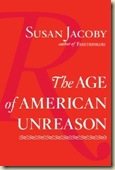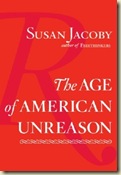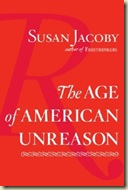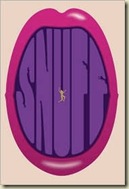 Snuff, the ninth novel by Chuck Palahniuk, the "edgy" writer of Fight Club (Shhhh!), Choke, Invisible Monsters, etc., needs a "fluffer," in the parlance of our times. In his previous work, Palahniuk has taken us into the (then fictional) world of underground fights clubs, into the offices of real-estate agents who specialize in flipping haunted houses, and into a commercial-jetliner cockpit with a recovering religious zealot/celebrity who is bent on committing suicide by taking down the plane (after all the passengers have disembarked). In other words, uncommon territory.
Snuff, the ninth novel by Chuck Palahniuk, the "edgy" writer of Fight Club (Shhhh!), Choke, Invisible Monsters, etc., needs a "fluffer," in the parlance of our times. In his previous work, Palahniuk has taken us into the (then fictional) world of underground fights clubs, into the offices of real-estate agents who specialize in flipping haunted houses, and into a commercial-jetliner cockpit with a recovering religious zealot/celebrity who is bent on committing suicide by taking down the plane (after all the passengers have disembarked). In other words, uncommon territory.
In Snuff, Palahniuk takes the reader into the snack-food filled, bronzer-stained green room on the set for World Whore Three, the final "gang bang" film made by Cassie Wright. Wright is a porn star beyond her prime, and during her marathon session with 600 men (she's trying to set the world record) she hopes to die either by a vaginal embolism or through the last-resort cyanide pill she asks Mr. 600 to bring in his locket. Unfortunately, the green room is not unfamiliar territory for Palahniuk's readers, even though many, one may hazard a guess, have never set foot in any green room let alone one on the set of a blue movie.
The male cast of World War Three is predictably filled with aging male porn stars who don't seem to recognize their bodies have lost their youthful luster, pig-headed chauvanists, aspiring actors, and the sexually frustrated. Palahniuk gives the reader the exact cadre that the reader would have created had he or she been asked to do so. The catering is bad: no surprise. The set manager treats the men like cattle: no surprise.1
In his non-fiction essay "Big Red Son," David Foster Wallace manages to surprise his readers with the truth more successfully than Palahniuk does with this fictional representation. In his essay, Wallace shows the absurdity, the depravity, but also the non-depraved humanity of the people who produce pornography. A country founded by Puritans, we are too ready to believe (erroneously) that people connected to pornography are pathetic degenerates; we are surprised to find out largely they are, in fact, just like the rest of us.
Palahniuk is at his best when he takes the reader into new places. However, in Snuff these moments most often do not deal directly with pornography, so Palahniuk uses them as small details of characterization, novelty pieces that ultimately do not advance the plot. What a shame.
In his book The Triggering Town, poet Richard Hugo distinguishes between the triggering subject and the generated subject in creative art. Hugo defines the triggering subject as that which the artist thinks he or she should be writing about, while the generated subject is what the act of writing reveals to be the actual, interesting subject of the piece. Hugo argues that the writer needs to drop the triggering subject when the generated subject arrives on the scene. In Snuff, a pornographic snuff-film is the obvious triggering subject (what Palahniuk wanted to write about), and no matter how many interesting generated subjects appear, Palahniuk never abandons his trigger. One could easily imagine reading a whole novel centered on Mr. 72, the adopted son of a mother who bakes erotic designer cakes and a father who is a model-train enthusiast:
My adopted dad was an accountant for a big Fortune 500 corporation. Him, me, and my adopted mom lived in the suburbs in an English Tudor house with a gigantic basement where he fiddled with model trains. The other dads were lawyers and research chemists, but they all ran model trains. Every weekend they could, they'd load into a family van and cruise into the city for research. Snapping pictures of gang members. Gang graffiti. Sex workers walking the tracks. .... All this, they'd study and bicker about, trying to outdo each other with the most realistic, grittiest scenes of urban decay they could create....
My adopted dad would use a single strand of mink hair to paint the number "312" across the tiny back of a street-gang figure. To make a member of the Vice Lords of Chicago. (35)
Moreover, Mr. 72's dad is likely a white supremacist who good-naturedly tries to indoctrinate his son:
If I stood next to him and put my hand on the basement work bench, if I held still, my adopted dad would paint the "WP" and "666" for White Power at the base of my thumb. Then he'd tell me, "Hurry and go wash your hands."
He'd say, "Don't let your mother see." (37-8)
 In these two paragraphs, Palahniuk creates a world more lush, more full of promise that he does in the rest of the novel. Through Mr. 72's background, Palahniuk introduces his readers to a world they never knew existed (if it did not before, it now will soon; perhaps then Palahniuk will not be blamed for inspiring real fight clubs but applauded for fostering interest in a healthy, socially-acceptable hobby). A novel about an enclave of white-supremacist model-train enthusiasts? Where can I pre-order a copy? However, Palahniuk keeps the narrative firmly rooted in pedestrian pornography.2
In these two paragraphs, Palahniuk creates a world more lush, more full of promise that he does in the rest of the novel. Through Mr. 72's background, Palahniuk introduces his readers to a world they never knew existed (if it did not before, it now will soon; perhaps then Palahniuk will not be blamed for inspiring real fight clubs but applauded for fostering interest in a healthy, socially-acceptable hobby). A novel about an enclave of white-supremacist model-train enthusiasts? Where can I pre-order a copy? However, Palahniuk keeps the narrative firmly rooted in pedestrian pornography.2
For their edginess, Palahniuk's novels often end on a recontextualized upnote, and Snuff is no different. Without spoiling the end, let's say it's electrifying but uninspired.
At the last, Snuff reads like a book built on what the author hopes will be a clever plot, and like most plot-driven narratives (Palahniuk's included) the characters are barely realized and language takes a back seat to movement and development—one wonders if product-placement money motivated Palahniuk to name his male porn stars after brands of liquor (Branch Bacardi, Cord Cuervo, et. al), and one quickly tires of the clever faux-porn titles if only because they are significantly more clever (To Drill a Mockinbird, A Tale of Two Titties, Catch Her in the Eye) than any porn filmography ever conceived (the 2008 AVN Best Film award winner is named Layout [Ed. Note- Beach volleyball themed? Talk about gritty!].
If you are new to Palaniuk, start elsewhere in his catalog. If you are an avid fan of his work, I won't be surprised if Snuff doesn't get a rise out of you.
1While one of these is Mr. 72, Darin Johnson (presumably not a porn name), who believes he is Cassie Wright's long-lost son, the reader is not surprised. Mr. 72 answers the casting call in order to "save" Wright, but when she tells him she actually had a daughter, he overcomes his erectile dysfunction and aggressively has sex with her, making her call for security to "get him off of [her]." Yet, if one had read a Palahniuk novel before, one would see this coming [
Ed. Note - No he di'n't!] from the outset, for drastic character reversals are Palahniuk's trademark. For the same reasons, the identity of Wright's actual daughter is equally obvious to the reader.
a aTruth be told, I was immediately convinced that the stage manager was Wright's child, but as I, like Mr. 72, was under the impression that Wright had a son, I anticipated the stage manager had undergone a sexual-reassignment surgery (another Palahniuk stock device).
2One wonders if Palahniuk (or sympathetic reviewers) will cite the novel's banality as part of the point, an illustration of the state of culture that a graphic story about a 600-on-1 gang bang barely raises the pulse of most readers. (Don't get me wrong, I still imagine that fundamentalists will get hot and bothered, but discriminating readers who read broadly will likely find this book a bit
ho-hum.)
 Snuff
Snuff
Chuck Palahniuk
Doubleday
197 Pages
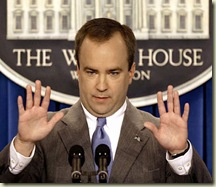 Does anyone remember the 2000 election, when the voting public acknowledged that then-Governor Bush did not seem like the brightest possible candidate but was likely to surround himself with great people and that those great people were as important as the president himself? [Exhibit A, Exhibit B]
Does anyone remember the 2000 election, when the voting public acknowledged that then-Governor Bush did not seem like the brightest possible candidate but was likely to surround himself with great people and that those great people were as important as the president himself? [Exhibit A, Exhibit B] While Dole may be right in his assessment of McClellan, his invective speaks to something much more nefarious. Dole suggests (perhaps rightly) that McClellan should have spoken up at the time, that it was McClellan's responsibility to do the right thing. More incredibly, Jack Cafferty, a conservative commentator on CNN, suggested that had McClellan spoken up at the time, he could have "saved a few lives."2
While Dole may be right in his assessment of McClellan, his invective speaks to something much more nefarious. Dole suggests (perhaps rightly) that McClellan should have spoken up at the time, that it was McClellan's responsibility to do the right thing. More incredibly, Jack Cafferty, a conservative commentator on CNN, suggested that had McClellan spoken up at the time, he could have "saved a few lives."2








